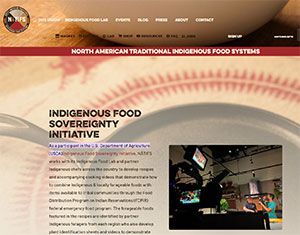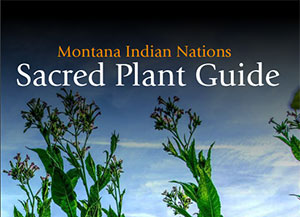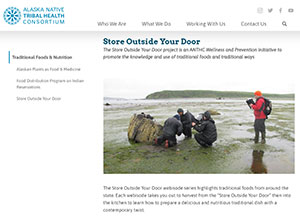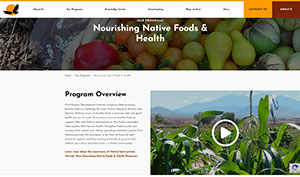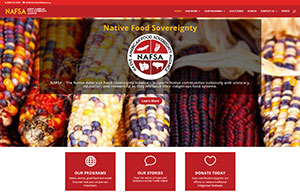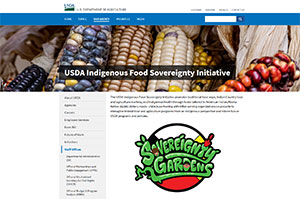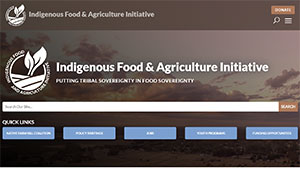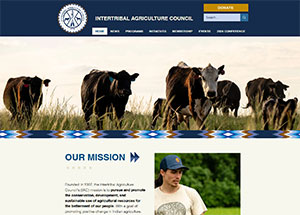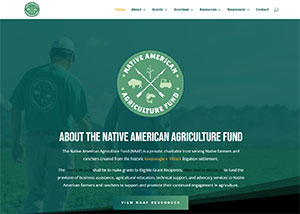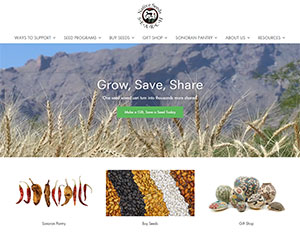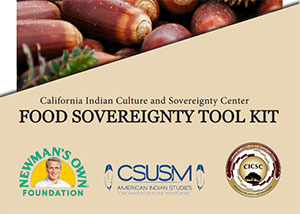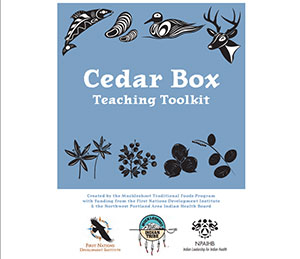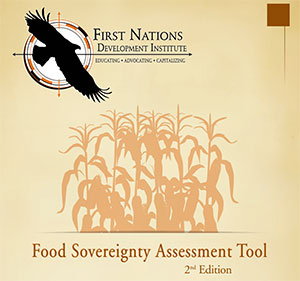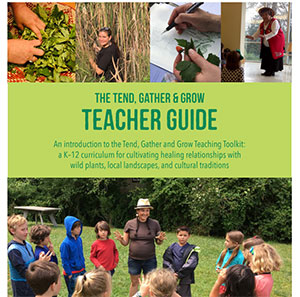Food Sovereignty
Tribal food sovereignty represents the right of Tribal Nations to control their food systems, including the cultivation, harvesting, production, and distribution of food. When colonial settlers arrived and forcibly relocated Tribes from their ancestral lands, these traditional food systems were severely disrupted. Additionally, policies aimed at acculturation further impacted the availability of ancestral foods, contributing to today’s challenges in accessing healthy, affordable food.
To address these impacts, Tribal food sovereignty initiatives have emerged and are growing in number, positively impacting food access, and revitalizing traditional food practices in Tribal communities. These efforts are strongly community-led and often rely on local funding.
The resources provided below can be used as a starting point to find out more about various areas of food sovereignty, and are categorized by the following sections:
Traditional Foods
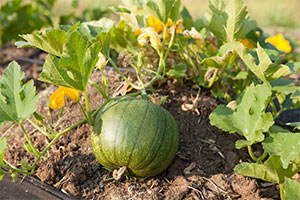
There are more than 570 federally recognized Tribes in the United States, each one unique in their cultural connection to foods and foodways. Traditional foods depend on the land and regional characteristics of the land base, such as terrain, climate, water security, and soil health. The traditional foods knowledge and methods vary greatly and have been practiced over generations to sustain Native people.
For those who want to better understand traditional Native foods, start with the resources listed below. You will find examples of the following:
- Traditional foods recipes
- Regional foods
- Cooking videos
To further your knowledge of local tribal foods it is essential to build meaningful relationships with community members, including elders, culture bearers, and food sovereignty champions.
Resources
| Indigikitchen Indigikitchen is an online cooking show dedicated to re-indigenizing our diets using digital media. Using foods native to their Americas, Indigikitchen gives viewers the important tools they need to find and prepare food in their own communities. |
|
| Native American Traditional Indigenous Food Systems (NATIFS) NATIFS is a resource that offers regional information on how to use indigenous foods to make healthier meals by offering traditional food recipes and cooking videos. |
|
| Sacred Plant Guide [PDF] The guide is designed as an educational resource that provides steps on how to grow, gather, and harvest the different plants, roots, and trees used by the Montana Plains Indians. |
|
| Store Outside your Door The Store Outside Your Door project is an Alaska Native Tribal Heath Consortium Wellness and Prevention initiative to promote the knowledge and use of traditional foods and traditional ways through a webisode series. |
Capacity Building
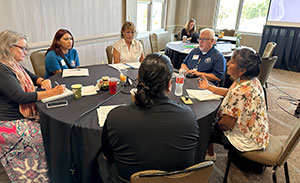
Restoring Indigenous foods systems and building a successful food sovereignty initiative requires an investment of time and energy. It also takes support from internal and external partners to establish a solid foundation that can grow and sustain the initiative. From establishing policies, to seeking funding opportunities, there are different phases to developing and strengthening local food sovereignty efforts. Find technical assistance and capacity building resources below.
Resources
| Drafting Tribal Public Health Laws and Policies to Reduce and Prevent Chronic Disease [PDF] The Public Health Law Center designed a resource to assist Tribal leaders, health directors, public health advocates, and community members in thinking about how to draft written public health laws and policies for their Tribes, with a focus on policies related to healthy foods. |
|
| First Nations Development Institute First Nations provides assistance addressing agriculture and food sectors in Native communities in the form of grants and technical support. |
|
| Native American Food Sovereignty Alliance The Native American Food Sovereignty Alliance provides technical assistance in program area's including resource development, policy/advocacy, education/health through cooking, peer-to-peer mentoring, youth engagement, and reestablishment of Indigenous trade routes. |
|
| Oneida Nation Food Sovereignty Strategic Plan [PDF] Oneida Nation outlined a strategic approach to foster sustainable food systems to share as an example for other Tribal Nations to adapt to their local community. |
|
| USDA Food Sovereignty Initiative The USDA is partnering with tribal-serving organizations on projects to reimagine federal food and agriculture programs from an Indigenous perspective and inform future USDA programs and policies. |
Farming & Agriculture
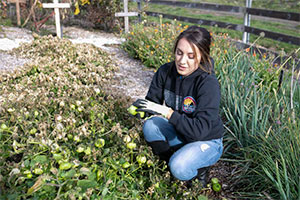
Indigenous people have performed innovative farming methods, seed saving, and plant medicine practices since time immemorial. By honoring the interconnectedness of all living things that make up our environment, external sources are now looking to Indigenous people for answers to address issues in farming and agriculture. Tribes are interested and invested in growing, harvesting, producing, and distributing their local regional foods to their community and beyond. Below are a few resources for those who want to learn more about Indigenous food, farming, and agriculture.
Resources
| Indigenous Food and Agriculture Initiative The Indigenous Food and Agriculture Initiative website provides Tribal governments, producers, and food businesses with educational resources, policy research, and strategic legal analysis as a foundation for building robust food economies. |
|
| Intertribal Agriculture Council Founded in 1987, the Intertribal Agriculture Council's (IAC) mission is to pursue and promote the conservation, development, and sustainable use of agricultural resources for the betterment of our people. With a goal of promoting positive change in Indian agriculture, IAC engages in a wide range of programs that aim to enhance the livelihoods and well-being of Indigenous people. |
|
| Native American Agriculture Fund The Native American Agriculture Fund website provides business support, resources and technical assistance for Native American farmers and ranchers. |
|
| Native Seeds Native Seeds/SEARCH conserves and shares the seeds of the people of the desert Southwest and Mexico so that these arid-adapted crops may benefit communities and nourish a changing world. |
Toolkits
Find toolkits on a variety of Food Sovereignty topics that can be adapted to meet the unique needs of your local community. The resources below are designed to assist programs with their own food sovereignty plans and deliverables.
Resources
| California Indian Culture and Sovereignty Center Food Sovereignty Tool Kit [PDF] This Food Sovereignty Tool Kit outlines the rich history of traditional foods and cultural food systems of the Indigenous Tribes of California. |
|
| Cedar Box Teaching Toolkit [PDF] The Cedar Box Teaching Toolkit offers a traditional foods curriculum showcasing the native foods in Salish Country which includes recipes, stories, activities, and videos. |
|
| First Nations Development Institute Food Sovereignty Assessment Toolkit [PDF] First Nations Development Institute created a Food Sovereignty Assessment Toolkit to help guide Tribes in fostering food sovereignty initiatives within their own community. |
|
| Tend, Gather & Grow – Teacher's Guide [PDF] This guide is an introduction to the Tend, Gather and Grow Teaching Toolkit: a K–12 curriculum for cultivating healing relationships with wild plants, local landscapes, and cultural traditions |
|
| Toolkit for Native Foods in Montana School Meal Programs This toolkit was created to help food service directors identify, procure, and successfully incorporate traditional, healthy foods into their breakfast and lunch programs. It is also a teaching tool to educate those interested in traditional foods about American Indian Nations and Tribal communities. |



